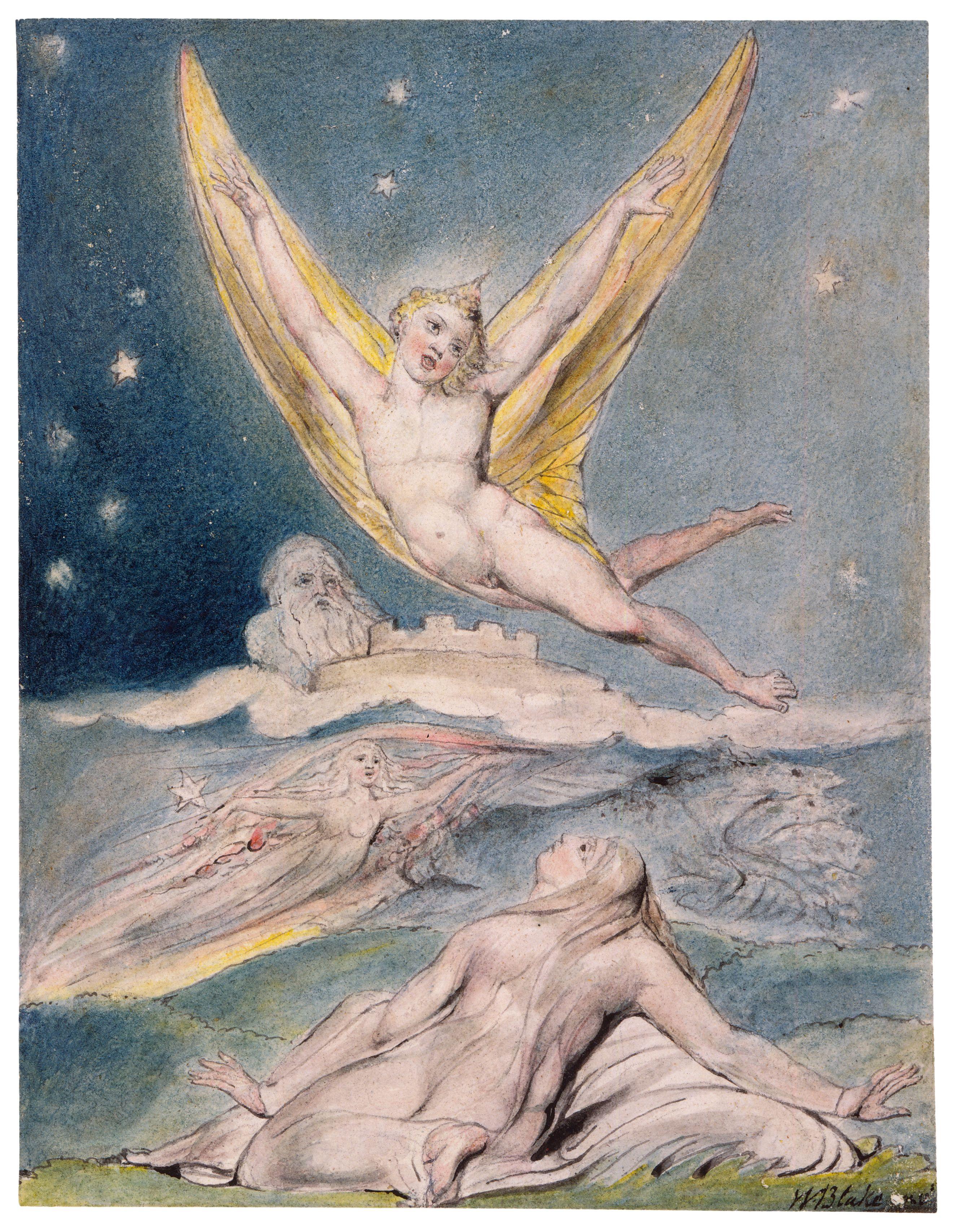
| Jerusalem Plate 51 Vala, Hyle and Skofeld, showing the crowned Vala |
Vala... Hyle... Skofeld
[materialism, rationalism, destruction]
The wisdom of John Middleton Murry shines on every page of his book William Blake, first published in 1933. In his chapter Forgiveness and War we read:
"Deism is the religion of the Selfhood; Christianity of Self-annihilation...The ultimate and inevitable expression of the unannihilated Selfhood, whether it assumes the disguise of philosophy or patriotism, or - in the politics of interest and 'security - no disguise at all, is war.
Between the world of the Selfhood, in all its forms, and the world of Self-annihilation there is a gulf of the kind that divides one order of being from another; and the outward and visible sign of their absolute heterogeneity is that in the world of the Selfhood, war is inevitable, while in the world of Self-annihilation, war is impossible. For Self-annihilation is Forgiveness, and where there is Forgiveness, there War cannot be. War is thus the test, simple and infallible, of the world's Christianity." (Page 315)
Jerusalem , Plate 52, (E 201)
"But the Religion of Jesus, Forgiveness of Sin, can never
be the cause of a War nor of a single Martyrdom.
Those who Martyr others or who cause War are Deists, but never
can be Forgivers of Sin. The Glory of Christianity is, To
Conquer by Forgiveness. All the Destruction therefore, in
Christian Europe has arisen from Deism, which is Natural
Religion."
The three figures in the image for the beginning of chapter three of Jerusalem - To the Deists - as labeled in another print, picture Vala, Hyle and Scofeld. They may be seen to represent the end product of following the Deistic philosophy. All three have lost their vitality and humanity and connection with each other.
Vala as fallen Nature is hard, dark, covered and closed although she bears the trappings of royalty which her sons bestowed upon her.
Hyle, a traditional name for matter, has assumed the shape of a cube which lets nothing in or out. Scholars associate Hyle with Haley who facilitated Blake's residence in Felpham. Blake soon learned that Haley intended for him forsake inspiration to engage in shallow projects of Haley's choosing. Blake's imagination could not be contained in the enclosure of purely material consciousness which occupied Haley.
The role which Scofeld played in Blake's life resulted in his becoming a complex symbol in Blake's poetry. Blake ejected Scofeld, a soldier, from his garden after an exchange of harsh words. Scofeld brought the charge of sedition against Blake. Although Blake was exonerated he had to endure being labeled an accused criminal and brought to trial. Scofeld was a weak and troubled man, a reprobate deserving of forgiveness and yet a real threat to Blake's freedom. The incident with Scofeld was instrumental in Blake's struggle to understand his own Selfhood and confront the necessity of annihilating it.
Luke 11
[52] Woe unto you, lawyers! for ye have taken away the key of knowledge: ye entered not in yourselves, and them that were entering in ye hindered.
[53] And as he said these things unto them, the scribes and the Pharisees began to urge him vehemently, and to provoke him to speak of many things:
[54] Laying wait for him, and seeking to catch something out of his mouth, that they might accuse him.
Jerusalem, PLATE 25, (E 170)
"And there was heard a great lamenting in Beulah: all the Regions
Of Beulah were moved as the tender bowels are moved: & they said:
Why did you take Vengeance O ye Sons of the mighty Albion?
Planting these Oaken Groves: Erecting these Dragon Temples
Injury the Lord heals but Vengeance cannot be healed:
As the Sons of Albion have done to Luvah: so they have in him
Done to the Divine Lord & Saviour, who suffers with those that suffer:
For not one sparrow can suffer, & the whole Universe not suffer also,
In all its Regions, & its Father & Saviour not pity and weep.
But Vengeance is the destroyer of Grace & Repentance in the bosom
Of the Injurer: in which the Divine Lamb is cruelly slain:
Descend O Lamb of God & take away the imputation of Sin
By the Creation of States & the deliverance of Individuals Evermore Amen"












